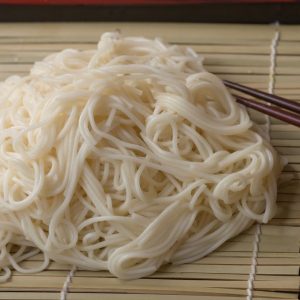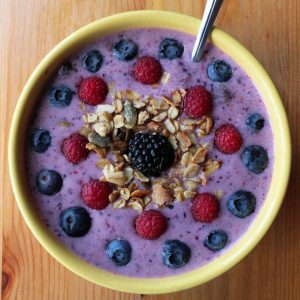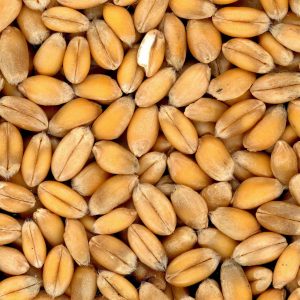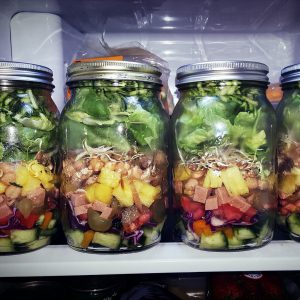Growing the Future: A Q&A with Stuart Oda
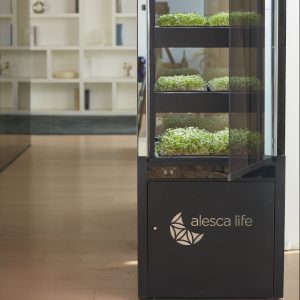

As we all become increasingly concerned with issues of sustainability, the future of how we grow out crops could lie in the hands of hydroponic farmers. Even Ikea has put their money on indoor gardening in the U.S. and the U.K., introducing a new line of products to help customers start their own hydroponic gardens this year.
In short, hydroponic gardening is a method of growing plants without soil by instead using mineral nutrient solutions in a water solvent. Until recently, hydroponic gardening was exclusive to large-scale farming but the introduction of accessible indoor farming systems has now put the power into the hands of both the consumer and the retailer. No longer restricted by climate or season, any plant can be grown at any time, any place and anywhere. Yes, that means in your home, your office building or in cafes and restaurants. Imagine being served a meal with vegetables that were harvested only minutes before they were put on your plate!
Some of the benefits of hydroponic farming as a sustainable method are:
- Water conservation: 70-90% of the water used in these systems is saved through recirculation.
- Flexible land use: has the capacity to grow 10 times more produce in the same footprint as terrestrial farming. Compared to soil farming they can deliver 30 percent faster time to harvest. These systems can be employed anywhere with suitable light, including rooftops and parking lots, as well on non-arable land and indoors.
- Locally produced: As produce can be cultivated in areas where growing outside would be a challenge during winter months.
 One company that is leading the hydroponic revolution is an urban Chinese start-up called Alesca Life, providing a first for congested city centres. In China especially, food security is increasing problematic as the country relies on imports to feed their billions of people. Alesca Life produces shipping containers that are fully equipped with hydroponic systems, completely pesticide and herbicide free and run almost wholly on software. "The agricultural industry uses a majority of our fresh water reserves and also contributes significantly to soil degradation and environmental pollution." explains the company's co-founder Stuart Oda, "Finding a more sustainable way to produce, transport, and consume food will be important to improving the health of the planet and our communities."
One company that is leading the hydroponic revolution is an urban Chinese start-up called Alesca Life, providing a first for congested city centres. In China especially, food security is increasing problematic as the country relies on imports to feed their billions of people. Alesca Life produces shipping containers that are fully equipped with hydroponic systems, completely pesticide and herbicide free and run almost wholly on software. "The agricultural industry uses a majority of our fresh water reserves and also contributes significantly to soil degradation and environmental pollution." explains the company's co-founder Stuart Oda, "Finding a more sustainable way to produce, transport, and consume food will be important to improving the health of the planet and our communities."
The team has designed a ‘Sprout’ automation system, a smart connected device enabling famers to grow most kinds of leafy green vegetables such as kale, lettuce and fruit vegetables like tomatoes, strawberries, and cucumbers. "We launched the Every Day Nutrition Series to grow foods that are highly nutritious to improve people's quality of life." Stuart told us, "Growing foods that are dense in calories is still quite challenging for the industry, and our initial focus is on producing nutrient-dense food in a way that reduces nutrient loss and degradation, food waste, resource use."
Read the rest of our interview with Stuart Oda below.
Veggiebuzz: In the TEDxBejingAdventures video about Alesca Life, you said that hydroponically grown vegetables are “safer and healthier” - can you go into more detail on this?
Stuart: There are a number of food safety issues that can be mitigated by growing food hydroponically. Arable land across the world is being contaminated with heavy chemicals, hazardous waste and pollution, and hydroponic growing methods can grow food in a cleaner and more hygienic way without the use of soil. Also, vegetables that are grown under higher levels of control can be more resilient to disease and nutritious.
Veggiebuzz: Has urban farming become technology accessible for anyone to use?
Stuart: The urban farming technology that is currently accessible to the general public is for hobbyists and enthusiasts and not a practical solution for daily food consumption. Our goal is to democratize the access to fresh food by democratizing the means of production, so we are developing technology that would make urban farming more accessible (technically and financially) to a wider audience for their daily needs.
Veggiebuzz: How can Alesca Life provide commercial scale quantities of food from smaller scale farms?
Stuart: Our modular systems are designed to be highly scalable. Already small scale farms produce a large portion of the food consumed globally, and Alesca Life's goal is to create food production systems that can be scaled up or down depending on the demand. Our systems can deliver incredible efficiencies because of the smaller form factors, and the results are easier to replicate anywhere across the world.
Veggiebuzz: What’s the comparative footprint between vegetables grown in traditional farms vs. urban farms?
Stuart: Our systems use 10-30x less water and 20-100x less land compared to traditional agriculture. We also require no pesticides, herbicides or fungicides to operate our facilities. We also drive higher labor efficiency due to our compact design, which has been optimized for both the plants and the farmer.
Veggiebuzz: What do you see happening in the future of agricultural technology and urban farming?
Stuart: The future of urban farming would be in the development of food production networks throughout the city. There is idle or under-utilized space throughout the urban landscape and converting each of these locations into highly productive farms that are networked through a smart IT infrastructure would allow cities to produce significant quantities of food for their local communities, reducing transportation logistics, road congestion, pollution, packaging waste, food waste, etc.
The future of agricultural technology is growing food in space. If we are ever going to become a multi-planetary species, then localized food production in space will be a critical component to this endeavor.
Veggiebuzz: Is there anything else you’d like to convey to our readers?
Stuart: The next major industry disruption will happen in the field of agriculture. The current approach is more software and data-centric, but the disruption will expand across the entire supply chain in the coming decade. It will be exciting to see how food is produced, transported and consumed in the next decade.
Sumati Menda
NEWSLETTER SIGNUP
Never miss a post from VeggieBuzz!
Sign up for our newsletter to get the latest VeggieBuzz content delivered right to your inbox.







